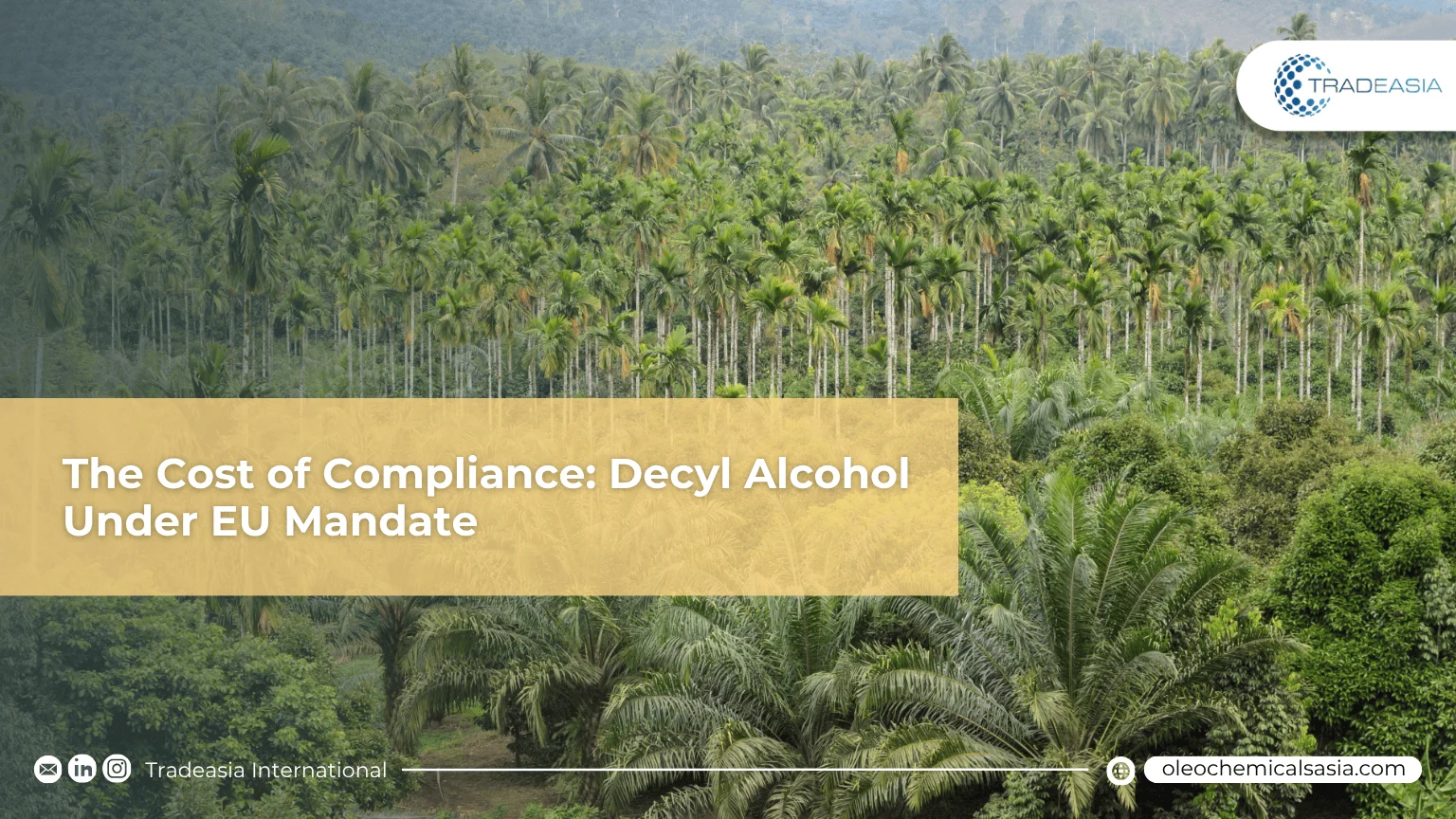The Cost of Compliance: Securing Market Access for Decyl Alcohol Under the EU Deforestation Mandate

Table of Content
- The Emerging 'Green Premium' in C10 Sourcing
- Mitigating Risk Through Segregated Supply Chains
The sustainability mandate is rapidly evolving from a corporate social responsibility talking point into a mandatory, market-shaping regulation. For Decyl Alcohol (1-Decanol), a vital component in surfactants and cosmetics, this is best exemplified by the looming European Union Deforestation Regulation (EUDR). Companies unable to verify their supply chain risk losing access to the world’s most lucrative consumer market. The global 1-Decanol market, currently valued at approximately $256.36 million in 2024, is projected to surge to $380.14 million by 2030, but this growth is now conditional on achieving full traceability.
Securing a consistent and compliant supply of palm-derived chemicals requires a partner with deep regional expertise and an unwavering commitment to responsible sourcing. This is where the intricacies of the global oleochemical supply chain come into sharp focus. As a principle of business, "Reliable supply is not just about logistics; it’s about tracing the very origin of every molecule."
The Emerging 'Green Premium' in C10 Sourcing
The EUDR’s demand for products to be deforestation-free post-December 31, 2020, necessitates precise geolocation data—a level of diligence that adds a measurable cost, known as the 'Green Premium.' Today, the premium paid for certified sustainable (RSPO or ISCC-certified) Decyl Alcohol is trading 3% to 5% higher than conventional grades, translating to an additional $45 to $75 per metric ton (MT). This premium reflects the significant investment required in robust monitoring and verification systems. Worryingly, only an estimated 25% of the current palm-based Decyl Alcohol supply chain has this full, verifiable traceability. Non-compliance is simply not an option for operators, as EU penalties can reach up to 4% of annual turnover, making the cost of the Green Premium a necessary investment to protect long-term revenue.
Mitigating Risk Through Segregated Supply Chains
The business case for segregated, fully certified supply chains is now overwhelmingly clear: they dramatically reduce supply disruption risk. Data shows that companies utilizing segregated sustainable C10 experience less than a 1% rejection rate for shipments into the EU, compared to an estimated 5% for non-certified goods (Source: EUDR Compliance Monitoring, Q3 2025). For the high-value cosmetic and personal care sectors, where Decyl Alcohol is a critical input, protecting margin and brand reputation makes this stability invaluable. According to analysis on the certified market, procurement managers find that supply assurance for traceable products is at an 85% confidence level, compared to 60% for conventional sources. The prudent course of action for any chemical procurement executive is to move swiftly toward fully compliant sourcing to insulate their business from both regulatory and operational risk in this rapidly polarizing market.
Sources:
-
Palm-Chemicals.com - The Critical Role of Palm Derivatives in High-Performance Emollients and Personal Care (https://www.palm-chemicals.com/personal-care-emollients)
-
Precision Business Insights - 1-Decanol Market Size, Share Analysis 2031 (https://www.precisionbusinessinsights.com/market-reports/1-decanol-market)
-
Sustainalytics - EUDR Compliance Monitoring, Q3 2025: Geolocation and Traceability Impact. (https://www.sustainalytics.com/esg-research/resource/investors-esg-blog/palm-oil-in-focus--the-eudr-and-corporate-efforts-on-transparent-sourcing)

Leave a Comment